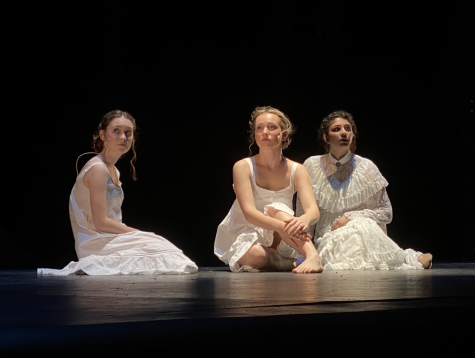“Prisoners” Sets Melancholy Tone
Movie Review
Autumn’s arrival marks the departure of sunshiny days, shorts and summer blockbusters. (At least for most of the United States). To accompany the cool winds and cloudy skies, French-Canadian director Denis Villeneuve released Prisoners, likely the year’s gloomiest movie. Its premise of a child abduction, as well as cinematography by Roger Deakins (No Country for Old Men), give the film an edge, but the most depressing aspect of the film isn’t its harrowing scenery or grim plot. What makes me melancholy is that despite the film’s pedigree, Prisoners doesn’t quite work.
Right off the bat, the audience is administered a lethal dose of moral ambiguity. First, we hear a recitation of the Lord’s Prayer. The camera pans out, and we see that the speaker is Keller Dover (Hugh Jackman) who’s gone hunting with his son in the wintery white Pennsylvania wilderness. Shots are fired and a deer drops dead. Deep, right? I admit it; the scene was pretty intense, but it sets a dangerously high precedent for the rest of the movie.
Back at home, we get to know Mr. Dover. He has a wife, a son and a young daughter. He makes an honest living as a contractor and cares for the well-being of his family. He also has a basement stocked with canned food, stashed weapons, gas masks and other survival necessities. Nothing could possibly go wrong.
Just kidding. This film has the goal of making a bold statement on the depravity of the human condition and that we are all, indeed, “prisoners.” So things take a turn for the worse when Dover and his friend Birch (Terrence Howard) find out that their daughters went missing.
The subsequent actions in the film are where the genius and talent of the cast and crew deserve recognition. We are introduced to two new characters: the likely suspect, played by the naturally creepy Paul Dano, and the officer on the case, played by the talented Jake Gyllenhaal. We find out through an eerie interrogation scene that the suspect has a mental capacity no higher than the children he supposedly abducted. The information the cop gathers about the case is insufficient for Dover, who takes matters into his own hands. All the while, the soundtrack buzzes its disturbing melody, and the skies turn grayer and grayer as the hopeless search goes on.
There is no doubt that the violent and disturbing parts of the film carry the ability to awe and entertain, but the film’s attempts made at providing moral substance fail miserably. The writer led the movie into a trap which made it impossible for the scenes in which the characters develop to provide entertainment, while the scenes that successfully engage the audience undermine the seriousness of the movie’s tone by presenting improbable, almost farcical scenarios.
The screenplay by Aaron Guzikowski boasts hyper-realistic dialogue that contains more unnecessary interjections and repeated lines than a Drake song. The dry monotony of these scenes certainly triggered an emotional reaction within me. I can recall all of the watch-checking, foot-tapping anxiousness I felt when I wanted to scream “just get it over with!” And the movie definitely taught me moral values because I learned to be careful of what I wished for. Instead of building upon the already established plot, the film goes backwards and introduces twists and turns that leave serious skid marks on the screen.






